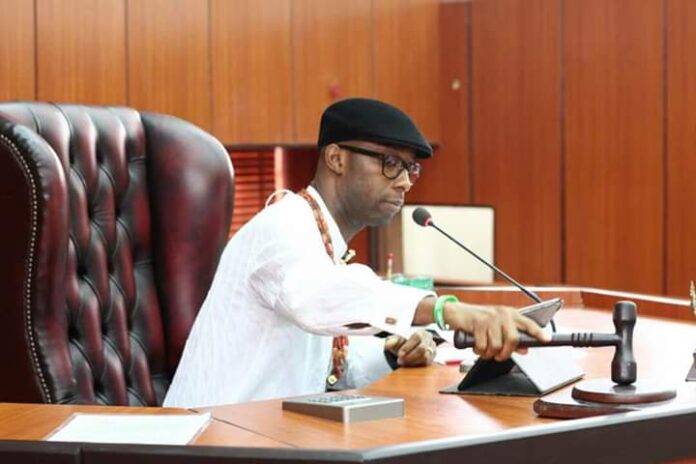Barr Onofiok Luke.
Ubong Sampson
Sometime in 2012, the concept, “participatory budgeting“, got traction in governance and institutional discussions in Akwa Ibom State. The concept which implies allowing citizens participate in the process of deciding and making law on how public funds should be spent, was introduced into the state’s governance system and popularised by Barr Onofiok Luke.
Pronto, budget was made to look sacred and kept highly secret, somewhat like the Seven Books of Moses. The introduction of participatory budgeting into the governance system marked the beginning of the unbundling of the fiscal regime process and launch of Akwa Ibom people into a brand new level of participatory democracy. From that bold effort of Onofiok Luke, Akwa Ibom state is now talking “citizens budget”. Citizens are now given more opportunity to contribute to making of budget proposals, scrutinize budget and monitor budget implementation.
RELATED STORY : Lawmaker tells federal government to revitalize ALSCON
Participatory budgeting began in Porto Alegre in Brazil in 1989 and was credited with shifting priorities to better support the poorest parts of the city, improving services, improving infrastructure, strengthening governance, and increasing citizen participation. It was a real success in terms of involving people typically left outside of the political process.
 Advertisement.
Advertisement.
We are yet to achieve the full complement of participatory budgeting in Nigeria. However, at the country’s current level of implementation, we can say that we are gaining some advantages from the transparency gradually building into the budget process. Budgets are now subjected to public scrutiny and discussion, hence, there is now some level of caution against outrageous and trivialised allocation of resources.
At the level of Akwa Ibom state, when one narrows down the merits and kudos we have made and earned as a state, we can look back and share the credit the state government has gotten since 2012 on this count, with the vanguard of that advocacy. Onofiok Luke deserves a piece of that credit for that citizens – centered and governance transparency advocacy.
Luke, while serving as Speaker of the Akwa Ibom State House of Assembly, saw the future, hence he set a template and raised the standard on governance system and practice. Aside the Financial Appropriations Bills, Luke set a standard, ensuring that other Bills were subjected to public hearing and scrutiny.
Recall that in 2012, while serving out his firs term, Luke had moved a motion seeking government action against indiscriminate advertising especially on walls of primary and secondary school buildings across the state. To what extent the motion had penetrated legislative processes is what I can’t tell. However, fate had it that while he sat as Speaker, between December 2015 to April 2019, Luke on May 8, 2018 passed a Bill to establish the Akwa Ibom State Signage and Advertisement Control Agency into law. The law which will empower government to raised revenue from outdoor ads and signage, metamorphosed from the motion against indiscriminate advertising, he moved in 2012.
READ ALSO : Letter on tithe refund by Mormon church is fake
Barr Onofiok Luke, a former state lawmaker and Speaker, can be remembered as one lawmaker who did not only set legacy paces but also used privileged positions to contribute to strengthening institutions and simplifying governance for the benefit of the common man.
This piece is part of Amazing Grace series, which chronicles the achievements of Barr Onofiok Luke, former Speaker of the Akwa Ibom State House of Assembly and currently a member of the House of Representatives.
















